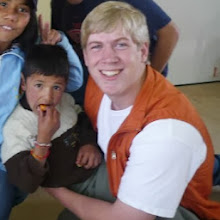[Mezger] presupposes that human beings of a given culture conceive the world and their place in it in a characteristic way, which they are utterly unable to escape-- and that if they live in a period of transition between cultures, or in circumstances in which they are open to many cultural influences, without having a coherent one that is theirs, they will be confused, and unable to classify their confusion except by finding a coherent culture and embracing it.Donagan then goes on to say that if this is true, then the next logical step is to demythologize the scripture (such as the transpatiality of the ascension of Christ, etc.) Then his next point,
So expressed, the philosophical legitimacy of liberal theology is unquestionable... What liberal theology lacks is neither religious seriousness nor moral character-- it is religious authority... [thus] in no case would they claim to teach doctrine authoritatively. In their different ways then, demythologized orthodoxy and liberal religion wittingly or unwittingly abandon the claim in any significant sense to possess and expound revealed truth.
I find these points by Donagan incredibly compelling. Does the lack of authoritative revelation dumb down the religious behavior? Certainly not. But it does seem to kill any sense of certain religious belief. In no way can any theological liberal or demythologizer of revelation claim to have any certain truth in regards to God and certainly not to the supernatural or divine. To me, it is almost comical; those who believe themselves to be freeing the Scriptures from its doctrinal chains end up binding their interpretation to their culture. They are enslaved to the whims of the day making the scriptures, to steal from Mezger, passé.
Of course, there is no imperative to believe anything. However, I think to be a Christian, which it is clear Donagan is writing of, one must have a tinge of religious orthodox, dare I say even a smidgen, or a sizable lump. To deny revelation and demythologize the faith itself is not to synthesize the faith to the reason, it is to denigrate the religion altogether by attempting to 'explain it away'. Perhaps this is a stretch, but the distinction between religious orthodoxy and demythologized orthodoxy is such that one seems to not be orthodox together, that is- to not even be the same faith but to be something altogether different.
Then, it seems, there must be a standard. An authoritative interpretation, as Donagan says, or at least a standard of believe, say- the Apostle's Creed or Nicene Creed. Regardless, it seem clear to me that liberal theology is baseless and in clear denial of the imperative or religious orthodoxy that the Christian faith demands to truly be able to claim Christ as he is historically and revealed divinely to be.

No comments:
Post a Comment